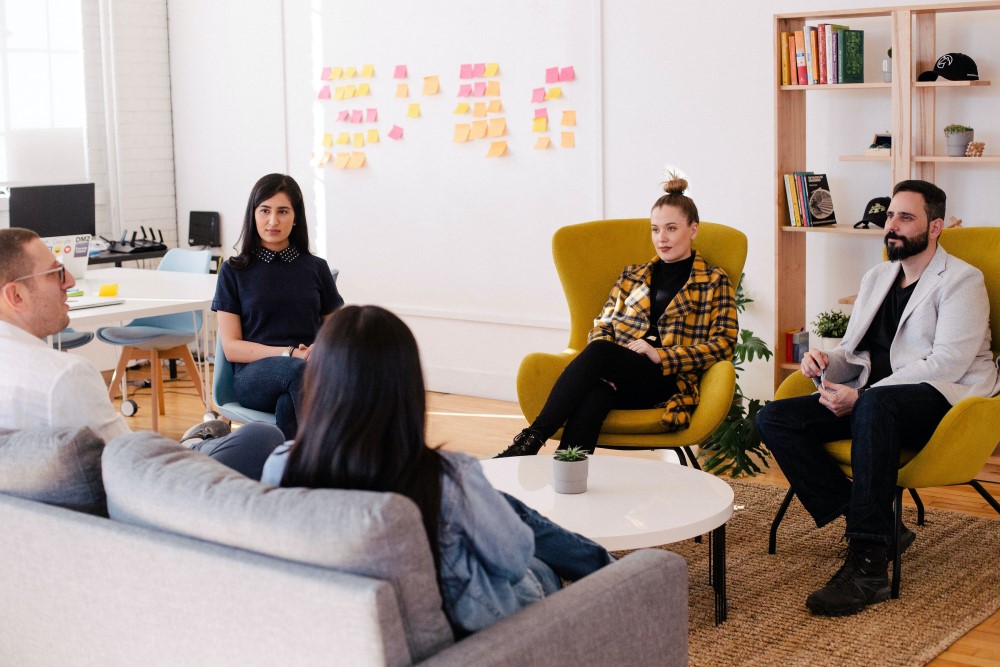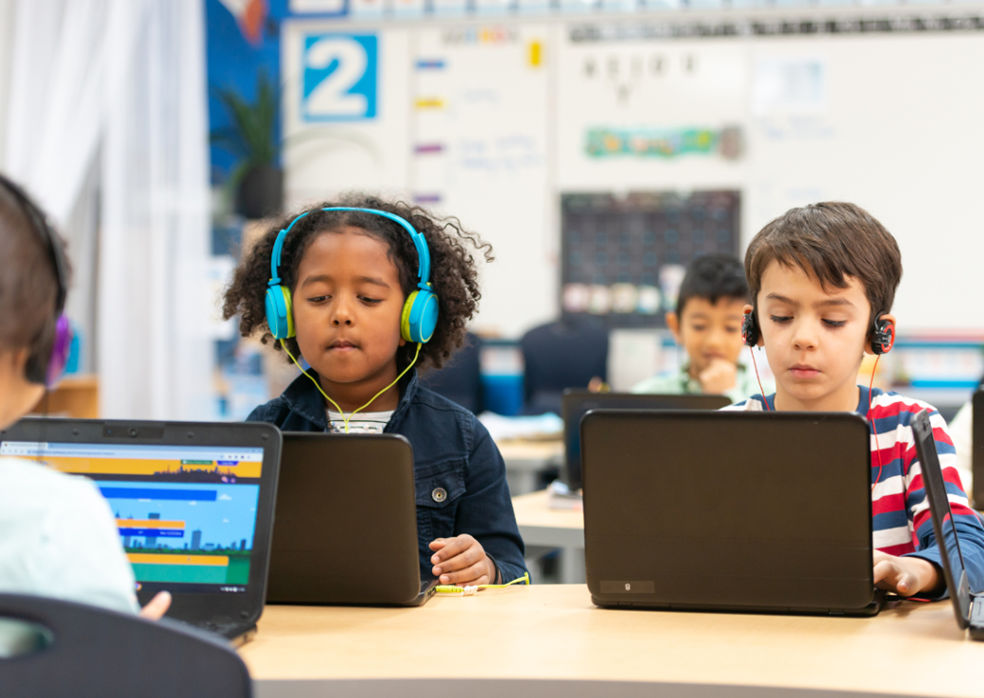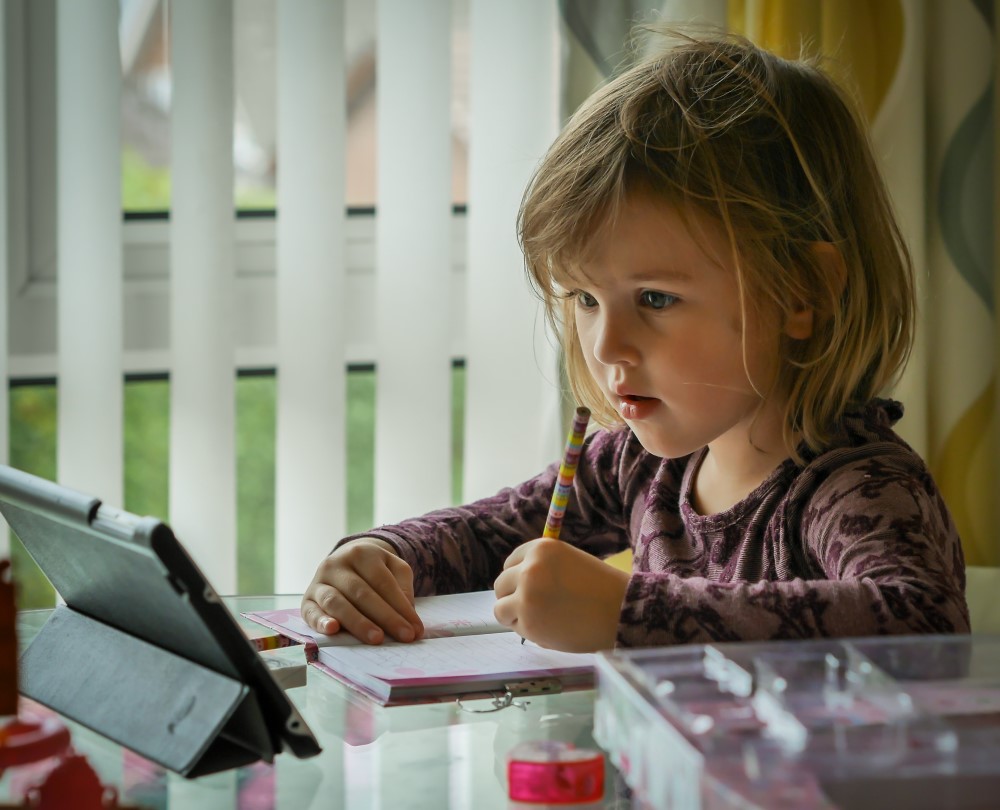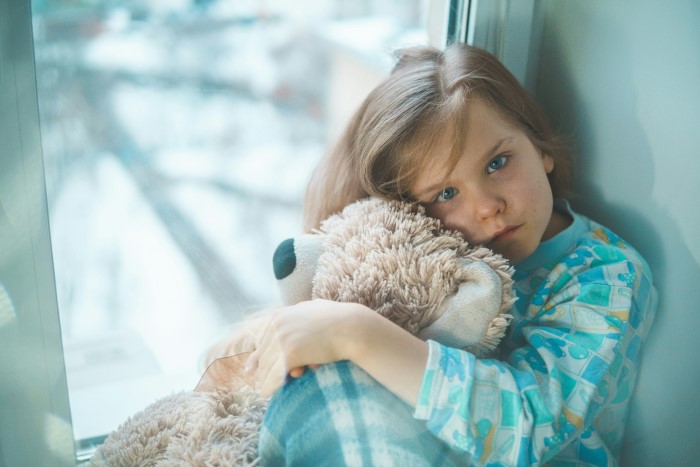Teaching children remotely might be the last thing you want to hear about right now as we are all slowly adjusting to the new normal, but the ability to maintain learning when children are not in class will continue to be important. Students can require remote studying for several reasons such as snow days, traveling or illness. When looking at the best option for your school, you want to make sure your students have access to communication tools to stay in touch with classmates, and teachers can schedule activities for them – all in a safe environment.
DB Primary supports collaboration through blogs and forums. Via our Learning Library, teachers can assign self-marking activities as well as create their own. The environment is made child-friendly not only by design, but also via a profanity filter and the golden whistle that allows children to report anything they find uncomfortable.
Remote vs online learning – what is the difference?
Most children today are online. Via social media, games and to find information. They are both consuming and creating their world online. The internet is also a great place for education, and it can be utilised anytime, anywhere. Online learning is improving learning outcomes; providing great opportunities to communicate, collaborate and get support from others.
When digging deeper into online learning we must also talk about topics such as Online safety, Relationships education, Computing and Digital Citizenship. Students need to understand how the online world works in terms of trustworthy resources, as well as how to behave and interact with other people. The use of online tools should mean platforms bringing opportunities for a child to avoid significant learning loss or delay if they need to take time away from school. This also involves ways of creating catch up plans as well as focusing on mental health, as it’s important to still feel connected, heard and seen – even outside of school.
When it comes to remote learning, we refer to any learning which takes place outside the classroom with no teacher present in the same location as the student. Remote learning can therefore include online learning, but also offline activities in books for example.
Safeguarding children online
Online safety is about how to behave online. In all their experience with the online world, children need direct teaching and intervention to develop appropriate skills and attitudes. This doesn’t mean adults holding conversations with children about the dos and don’ts of being online, of setting rules and expectations in isolation; It means giving children first-hand experience and building values and attitudes through responsible behaviours.
Collaboration via blogs and forums within DB primary is a great way of teaching a class about what is appropriate and not. Being online, one can feel protected from the real world; but it’s important to know how to highlight anything that does not feel comfortable, and to understand that actions have consequences online as well as offline.
Our children must learn that forming friendships online is great, and that being online opens a whole world of connections to people across the globe who might share the same interests – but we also need them to practice safe behaviours when they do.
Relationships Education
Relationships Education is the biggest and most significant change to the curriculum in recent years. The need for its introduction was largely driven by the impact the online world has on real life relationships, both positive and negative.
The Relationships curriculum has an Online Relationships strand, but it would be a mistake to miss the importance of the online world in the other strands such as staying safe and caring friendships. Consider how children maintained friendships throughout the pandemic; how they connected and stayed in touch, and what behaviours were required to build, maintain and strengthen relationships whilst staying safe.
Defining a good relationship is hugely important when it comes to online safety and education, but also in defining what a caring and respectful relationship means. How to treat and be treated by family and friends. Again, interactions within blogs, forums and via email is a good tool for teaching, intervening and observing children’s behaviour towards each other. And our Learning Library is full of further great resources such as activities and talking points.
Digital Citizenship; goes beyond safety
Online Safety is not something that happens in isolation. It’s about ensuring the online space is a safe, responsible and respectful place. Every user of the web contributes to its quality. Good interaction improves the space, conversely poor attitudes impact it negatively for all. Encouraging children to understand how to be a good citizen is as important online as it is offline. Digital citizenship is about building the knowledge, skills and understanding that improve the web for all users. In the same way we anticipate children to become good citizens we should expect them to become good citizens of the online world, Digital Citizens.
Children can only develop their notion of citizenship through first-hand experience of communicating, collaborating and with others online. They need guidance, support, intervention to develop appropriately.
Computing
The Computing curriculum is a key part of the primary curriculum. Children need teaching the full range of the area including coding. This is often a challenging area for non-specialists, but it doesn’t need to be. With simple, meaningful and child friendly activities that build skills, knowledge and understanding the development of understanding algorithms can be made much simpler. DB Primary offers such activity in a progressive programme covering Yr-Y6. The entire coding curriculum can be taught without the need for any secondary or supplementary input.
In conclusion
These topics can be difficult to separate – and some hard to teach; but they are necessary! Giving yourself and your students a platform that will provide them with safe first-hand experience of these topics as well as the freedom to express themselves, learn from each other and stay on track if remote is really helpful.
For more inspiration on how DB Primary can be used both in class and remotely, please contact us.

 Australia
Australia Canada
Canada New Zealand
New Zealand UAE
UAE United States
United States








